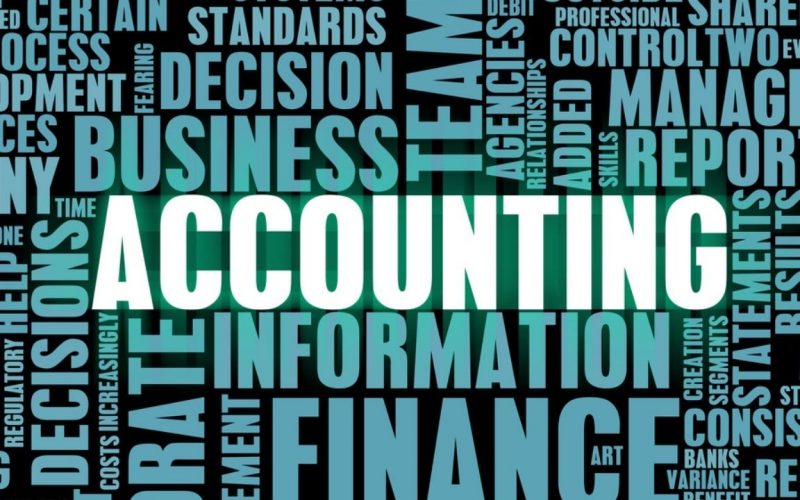If you’ve ever thought about pursuing a degree in accounting, becoming a government accountant is one of the most rewarding careers that you can opt for. This is because government accounting is defined largely by the practice of fund accounting. It divides resources into funds to identify their allocation and sources. Each fund is intended for a particular purpose. Whether it’s expenses for a particular program or income from tax payments. Dividing these resources into funds helps to control and manage the financial resources of the government, and that’s where accountants are needed. Continue reading, as you discover the world of government (and other) accounting. Let’s start with the major question, “What is Government Accounting?”
What is Government Accounting?
Government accounting, also known as governmental accounting is a term that describes managing all the financial transactions of the government. It involves all the accounting standards, principles, and processes used to control the government’s financial needs, i.e, its income and expenses.
More so, different countries have different accounting systems which they follow. For example, in the United States, there are two levels of government, which follow different accounting standards set by independent boards.
At the federal level, they follow the accounting standards set by the Federal Accounting Standards Advisory Board (FASAB), while at the state and local level, they follow the Governmental Accounting Standards Board (GASB).
Concerns have been raised about the similarities and differences between governmental accounting and for-profit accounting. A report by the Governmental Accounting Standards Board (GASB), shows that governmental accounting is different from for-profit accounting in so many ways.
According to this report, “Governments serve a broader group of stakeholders, including taxpayers, oversight groups, citizens, elected representatives, bondholders, and others in the financial community.
Most of their revenue is raised through involuntary taxes rather than a willing exchange of value between two parties in a regular business transaction.
More so, Governments exists longer than for-profit businesses and are not subject to bankruptcy and dissolution, unlike private sector organization.
Hence, these differences require separate accounting standards and principles that help assess the government’s accountability.
READ MORE: Accounting Standards: Overview, Benefits & Codification
What is the Difference Between Government Accounting and For-Profit Accounting?
The mode of operation of government organizations shows that the major responsibilities of a government accountant will differ from those of certified public accountants working for private sector organizations.
Conversely, certain aspects of the role will have similarities. For instance, both the government accountant and the private sector accountant will work with available financial information about the income and expenditure of the respective body and generate financial statements for key stakeholders in the organization.
However, the major difference is that government accounting is all about having public accountability and good decision-making, rather than increasing profits.
The CPA Journal published major knowledge and experience requirements in governmental accounting. These areas include;
- Public administration
- Ethics
- Public financial management and budgeting
- Auditing
- Public policy
- Accounting and financial reporting
- Relevant laws and regulations
- Information systems.
Also, in governmental accounting, budgets are legal documents and can be shared with the public. However, in private sector organizations, that is not the case as budgets can be a means to drive profitability, hence only key stakeholders in the organization can see it.
Additionally, government accountants use specific accounting methods such as;
- Full accrual basis of accounting
- Encumbrance accounting
- Modified accrual accounting
LEARN ABOUT: IAS (International Accounting Standards) Overview & List, Updated!!!
Which Boards are Responsible For Government Accounting?
There are two independent, private sector boards that set the Generally Accepted Accounting Principles (GAAP) for government accounting.
Learn more about GAAP: Overview, Importance, History, Limitations
They are;
- The Federal Accounting Standards Advisory Board (FASAB)
- The Governmental Accounting Standards Board (GASB)
At the Federal level, the Federal Accounting Standards Advisory Board (FASAB) sets the accounting standards.
In 1990, FASAB was created to develop accounting standards and principles for the United States Government. These standards were designed in such a way that allows the Federal Government and its agencies, to provide the public with relevant, understandable, and reliable financial information.
In 1999, the American Institute of Certified Public Accountants (AICPA) recognized FASAB as the board that sets generally accepted accounting principles (GAAP) for federal bodies.
The Governmental Accounting Standards Board (GASB) on the other hand, sets accounting standards for state and local governments.
In 1984, the Financial Accounting Foundation in partnership with different associations representing the state and local governments, established the GASB to set state and local accounting standards.
Since 1999, the GASB has mandated the state and local governments to produce a government-wide statement of activities and net assets.
(A statement of net assets is similar to a balance sheet. It shows the assets and debts of an organization while a statement of activities on the other hand is similar to an income statement. Its difference is that it uses the terms excess or deficit instead of profit or loss.)
These statements are prepared using the accrual basis of accounting. In this method, the revenues are recorded in the accounting period they are earned and are measurable.
READ MORE: Financial Accounting Standards Board (FASB): Codification, History & Functions
Who is a Government Accountant?
A government accountant is a person who records and oversees all business transactions including the incomes and expenditures of the government.
In other words, they are accountants that work in the public sector to record, oversee, examine, and maintain the financial records of government agencies. In addition, they audit the accounts of private organizations and individuals who pay taxes.
What Are the Benefits of Becoming a Government Accountant?
For lots of professionals, working in a government organization can be a whole benefit on its own. For some, it could mean leaving the corporate space mindset to something bigger than yourself.
As a government accountant, your ultimate duty is to ensure the government’s financial record is credible in public. This means ensuring that the public trusts the government with tax money.
Additionally, you get to enjoy competitive salaries and extensive employer-benefit packages. Some of which may include access to robust health care packages, public transportation subsidies, student loan waivers, considerable retirement matching plans, and lots more.
More so, the interdisciplinary nature of a government accounting job makes it really beneficial. Accountants who work in smaller agencies can handle more responsibilities than their counterparts in private sector organizations.
Another benefit of working in a government accounting role is that it provides the work-life balance that lots of professionals seek. Employees are not expected to work extra time or over the weekend, as they follow standard working hours. This makes the job very flexible and less demanding.
READ ALSO: Forensic Audit: Cost and Procedures in Carrying Out an Audit
How Much Do Government Accountants Earn?
According to ZipRecruiter, the average salary of a Federal Government Accountant is $81,957/yr. This is as of June 1, 2022. This also means that it is about $39.40/hr, which is equivalent to $1,576/week or $6,830/month.
The salary of a federal government accountant can vary depending on the organization they work in, as well as their experience level.
In local and state governments, government accountant earnings can vary based on a wide variety of other factors too. Regardless, accounting is regarded as a profitable profession.
READ ALSO: SAP ACCOUNTING: What is Sap Accounting? (+ Top 2022 Courses)
Where Can You Work As a Government Accountant?
As a government accountant, you’d work majorly in a public setting. You may be employed at the local, state, and federal levels depending on the opportunity you get.
Although all accountants work at all levels of government, one of the highest paying government jobs is at the Government Accountability Office (GAO). The GAO is an independent nonpartisan agency that operates as the investigative arm of Congress.
Bi-yearly, the GAO releases a list of government programs that are at high risk of waste, fraud, and abuse.
Furthermore, a government accountant can work at the Internal Revenue Service. In the agency, accountants serve in various capacities.
In general, any government organization that needs to manage and maintain its financial records must require the services of a governmental accountant.
More so, most government agencies rely on the services of several government accountants. For Instance, according to FederalPay.org, The Security and Exchange Commission had 4,569 employees in 2022 with an average pay (base salary + bonus) of $186,241.67. The most common occupation was general attorney followed by accounting.
Also, the accountant was the 37th most popular job in the United States Government in 2021 with 8,145 employed. In 2021, the Securities and Exchange Commission (SEC) hired the most accounting employees, with an average salary of $202,543.
What is The Example of Government Accounting?
In the first place, government accounting divides up the enormous influx of revenues. The budgeting process is carried out in detail by government accountants. Additionally, each fund must be established in accordance with particular regulatory restrictions.
How Does Government Accounting Works?
They perform a variety of tasks, including auditing tax accounts to ensure the accuracy and completeness of the information they contain and looking into the financial records of different government agencies to look for indications of fraud or other forms of budget-related wrongdoing.
READ ALSO: AUDITOR SALARY: A Comprehensive Guide and Listings
What is the Job Outlook For Governmental Accounting?
As published in the CPA journal, there is an urgent need for massive governmental accounting education. This is in a bid to raise qualified government accountants who will replace the retirees throughout the 2020s.
Also, according to BLS, the employment of accountants and auditors will grow 4percent from 2019 to 2029.
In general, the employment growth of accountants and auditors is closely linked to the overall growth of the economy.
As the economy grows, more accountants and auditors will be required to prepare and examine financial records.
Aspiring accountant professionals can have various opportunities in the workforce, or even land a government accounting job early in their career.
Generally, accounting job prospects will vary depending on the location.
How Can You Become a Government Accountant?
As stated by the BLS, you’d need a Bachelor’s degree in accounting or a related field to become an accountant or auditor.
However, reports in the CPA Journal emphasize that an Undergraduate experience is not enough to fully prepare you for life as a government accountant.
Hence, completing a certification course in a specific field of accounting, such as becoming a licensed Certified Public Accountant (CPA) can set you on the right track to becoming a very good government accountant.
What are The Three Features of Government Accounting?
in order to maintain budgetary restraints on spending. to share data on expenses that were allocated and used. in order to supply statistics and financial information for budget creation.
Where is Government Accounting Used?
State, county, municipal, and special district governments utilize local government accounting software to track and report on how money is used and handled.
Why Do We Study Government Accounting?
Government accountants are in charge of examining and documenting all of the government’s financial actions, but they can also help to shape tax, spending, and other financial policies.
What is The Main Duty of Government Accountants?
They are essential in keeping track of expenditures, receipts, and collections as well as in creating the financial statements or reports that are routinely provided to Congress, the Commission on Audit, the Department of Budget and Management, the National Treasury, and other relevant agencies.
What are Government Accounting Standards?
In accordance with generally accepted accounting principles, the Governmental Accounting Standards Board establishes standards (GAAP). Public officials, investors, and taxpayers are just a few of the groups and people that could benefit from this set of guidelines, which are meant to encourage financial reporting and give meaningful information.
The Bottom Line
Now that you have a good understanding of what governmental accounting is all about, the main question should be “Is this the right career for you?”
The right answer to this question will determine if you should pursue a career in government(al) accounting.
All the best!
Government Accounting FAQs
How much does a government accountant earn?
The average salary of a Federal Government Accountant is $81,957/yr. This also means that it is about $39.40/hr, which is equivalent to $1,576/week or $6,830/month.
How can I become a government accountant?
To become a government accountant, you have to earn a bachelor’s degree in accounting or any relevant field. Then, you can register for certified online classes that will prepare you for life as a government accountant.
Is accounting difficult?
The answer to this question depends on your strengths and weaknesses. Accounting involves simple arithmetic. So if maths is hard for you, you may find accounting very difficult.
What skills do you need to be an accountant?
To become an accountant, you need basic soft skills like strong written and oral communication, analytical and problem-solving skills, organizational skills, as well as good time management skills.
Recommendations
- CONSUMER FINANCING: Best Financing Companies & Programs
- Corporate Development: Definition & Complete Guide to the Corporate Development Strategy
- Fortune Global 500: Company List, 2022 Predictions & All You Need
- EQUITY FINANCING: Types, Sources, Advantages & Disadvantages
- Double-Entry Accounting Explained!!! Definition, How it Works, & Examples






